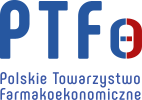Methodology and development of the Polish Dictionary of Quality of Life Terms
-
Copyright
© 2013 PRO MEDICINA Foundation, Published by PRO MEDICINA Foundation
User License
The journal provides published content under the terms of the Creative Commons 4.0 Attribution-International Non-Commercial Use (CC BY-NC 4.0) license.
Authors
Background: Lack of established Polish terminology is a serious limitation of the development of health-related quality of life (HRQoL) studies in Poland. Our goal is to suggest the best translations in order to create the Polish dictionary of QoL terms.
Methods: In February 2012, QoL Special Interest Group of ISPOR Poland Chapter took on the task of preparing Polish dictionary of HRQoL terms. The following steps were planned: (1) preparation of a list of target English-language terms, (2) preparation of a reference list of translations already used in Polish literature, (3) step-by-step translation of English terms by individual experts (4) analysis and approval of proposed translations by Expert Committee, (5) re-analysis of key terms, (6) preparation of pre-final dictionary, (7) reviews by Review Committee, (8) preparation and publication of the final version. Expert Committee was comprised of seven Polish investigators with vast experience in the field of HRQoL studies. Review Committee was formed by three authorities in the field of psychometrics, statistics and epidemiology.
Results: Until June 2013, there were 13 meetings of Expert Committee: three focused on the development of methodology and ten - on analysis and approval of proposed translations. Initially, we identified 1640 English terms from different sources. After removal of duplicates, final English list comprised of 1314 terms. Pre-final version of vocabulary, ready for peer-review, consists of 1051 Polish translations.
Conclusions: We anticipate, that dictionary prepared by the ISPOR Poland Chapter will support practical usage of patient HRQoL in Poland.
Introduction
A development of a new field of science is generally supported by the publication of dictionaries in order to standardize and popularize professional vocabulary. For example, the development of pharmacoeconomics in Poland was supported by two important publications: dictionary by Orlewska & Czech (2002) [1] and then, lexicon by Lis et al. (2009) [2]. In both prints, proposals of translations of selected quality of life and health state utility terms can be found, but the most of specific terms remains untranslated into Polish.
Lack of established Polish terminology is a serious limitation of the development of health-related quality of life (HRQoL) studies in Poland. Our objective was to develop Polish dictionary of terms used in the HRQoL studies. In this paper we present the methodology of the translation process and preliminary results.
Materials and Methods
In February 2012, Quality of Life Special Interest Group (QoL SIG) from ISPOR Poland Chapter (Polskie Towarzystwo Farmakoekonomiczne; PTFE) took on the task of preparing Polish dictionary of HRQoL terms. Fig. 1 presents an outline of the project. Eight steps were planned and will be described in details below.
Figure 1. Subsequent stages of a development of the Polish Dictionary of Quality of Life Terms
Step 1: Preparation of a list of target English-language terms
First, the list of target English terms was prepared. It was based on following sources: popular English-language HRQoL textbooks [3,4], key words from papers published in leading peer-reviewed journals in the field, ISPOR guidelines concerning patient-reported outcomes, websites of generic HRQoL instruments (Table 1).
Table 1. Sources of English-language terms to the Polish Dictionary of Quality of Life Terms
|
Sources |
Number of identified terms |
|
Textbooks: Fayers P, Hays R. Assessing quality of life in clinical trials (2005) Fayers P, Machin D. Quality of Life: The Assessment, Analysis and Interpretation of Patient-reported Outcomes (2009) |
276
640 |
|
QoL Methodological Guidelines on ISPOR Website |
230 |
|
Key words from papers published in leading journals in the field: Quality of Life Research (2010 - 2012) Value in Health (2008 - 2012) |
618 141 |
|
Terms specific for leading generic questionnaires: SF-36 (http://www.sf-36.org/) EQ-5D (http://www.euroqol.org/) |
33 30 |
Step 2: Preparation of a reference list of translations typically used in Polish literature
The list of translations used in Polish literature was based on pharmacoeconomics [5,6,7,8,9] and psychology textbooks [10,11,12,13], available dictionaries [1,2,14], HRQoL papers published in Polish language, peer-reviewed journals and others [15]. The search was not targeted at any specific terms and the list was treated as a reference point in following steps of translation process.
Step 3: Translation of English terms
A list of English terms was divided among seven members of Expert Committee - Polish investigators with an experience in the field of HRQoL studies or measurement methods education – all of them, PTFE members. Individual English terms were translated by a member picked at random. Experts were obliged to follow the procedure: (1) to perform a targeted search of existing Polish translations of an English term (Google browser was used to identify available scientific publications – papers, congress posters or presentations), (2) to refer to results of untargeted search of Polish quality of life terms, (3) to prepare a suggestion of up to three Polish translations, taking into account frequency of usage of a specific Polish translation and a general fit.
Step 4: Analysis and approval of proposed translations by an Expert Committee
Each proposed translation was presented by an author during meeting of an Expert Committee, with discussion over the rationale of translation choice. Experts either accepted the proposition or sought for another Polish term with a better fit.
There were several successive decisions made: (1) all terms will be presented in the singular, (2) expansions of questionnaires abbreviations will be presented in the annex to the dictionary, (3) dictionary will contain generic names of questionnaires in a few cases in which the Polish name is indisputably accepted and widely used (i.e. St. George's Respiratory Questionnaire / Kwestionariusz Szpitala Św. Jerzego).
Step 5: Re-analysis of key terms / Step 6: Preparation of pre-final dictionary
It was planned that key terms, in particular those which yet not had a functioning Polish translation, will be re-examined by the Expert Committee. Before submitting for a review, a list of all terms will be validated internally (in terms of internal cohesion) and externally (in relation to the reference list from untargeted search).
Step 7: Reviews by Review Committee
Review Committee will be formed by at least three authorities in the field of psychometrics, statistics and epidemiology, from outside the PTFE. In the case of lack of agreement, decisions will be made on the basis of consensus.
Step 8: Preparation and publication of the final version
The final version of the Polish Dictionary of Quality of Life terms will be published both in paper and electronic version and widely disseminated.
Results
From February 2012, till June 2013, there were 13 meetings of the Expert Committee: three focused on the development of methodology and ten - on the analysis and approval of proposed translations. Initially, we identified 1640 English terms from different sources. After removal of duplicates, final English list comprised of 1314 terms. Pre-final version of vocabulary, ready for peer-review, consists of 1051 Polish translations.
Discussion
A large number of quality of life terms have been functioning in the Polish language since years. The case is that, usually, there are many Polish equivalents for a single English term. It is a simple consequence of the lack of standardization in this area and the situation in which the Polish researchers are forced to search for Polish terms ad hoc. The project to develop English-Polish dictionary of quality of life terms is an attempt to clean up the area and introduce some standardization, by identifying Polish most commonly used and preferred terms. It is worth noting that, still, there is a group of English terms (eg. response shift), which do not have any Polish equivalents, and these concepts are the biggest challenge in the project. Time will tell whether the proposed Polish translations would be adopted among domestic researchers.
Adopted methodology of work on the dictionary has some limitations. In its intention, the dictionary is more democratic than based on the opinion of a single expert. The final decisions of the Expert Committee were made on the basis of the majority. In this way, the dictionary is a kind of a compromised position of many individuals - members of PTFE involved in QoL research and education, as well as researchers from outside the PTFE who created the Review Committee.
Future steps in the work on the dictionary include a review by the Review Committee, final approval, publication and dissemination. We anticipate, that the dictionary won’t meet all the identified needs of researchers. There is still no publication of a lexicon type, containing precise definitions of various concepts. Such a lexicon will be the next task of Polish ISPOR Chapter QoL SIG.
Conclusions
We anticipate, that dictionary prepared by the ISPOR Poland Chapter will support practical usage of health related quality of life outcomes in Poland.
Acknowledgements
We are grateful to Jakub Baran and Aneta Wójcikowska who took part in some meetings of the working group.
- Orlewska E., Czech M. Słownik Farmakoekonomiczny. Unimed, Warszawa 2002
- Lis J., Jahnz-Różyk K., Hermanowski T., Czech M. Koszty, jakość i wyniki w ochronie zdrowia. Leksykon podstawowych pojęć ISPOR. Polskie Towarzystwo Farmakoekonomiczne, Warszawa 2009
- Fayers P., Hays R. Assessing quality of life in clinical trials. Oxford University Press, Oxford 2005
- Fayers P., Machin D. Quality of Life: The Assessment, Analysis and Interpretation of Patient-reported Outcomes. John Wiley & Sons, Chichester 2009
- Orlewska E. Podstawy farmakoekonomiki. Unimed, Warszawa 1999
- Czech M. Farmakoekonomika. Ekonomiczna ocena programów ochrony zdrowia. Oficyna Wydawnicza Politechniki Warszawskiej, Warszawa 2004
- Orlewska E., Nowakowska E. Farmakoekonomika dla studentów i absolwentów akademii medycznych. Wydawnictwo Akademii Medycznej im Karola Marcinkowskiegow Poznaniu, Poznań 2004
- Czech M. Farmakoekonomika jako narzędzie zarządzania w gospodarowaniu lekami w Polsce. Instytut Przedsiębiorczości i Samorządności, Warszawa 2006
- Kawecka-Jaszcz K., Klocek M., Tobiasz-Adamczyk B. Jakość życia w chorobach układu sercowo-naczyniowego. Metody pomiaru i znaczenie kliniczne. Termedia Wydawnictwo Medyczne, Poznań 2006
- Brzeziński J. Trafność i rzetelność testów psychologicznych. Wybór tekstów. Gdańskie Wydawnictwo Psychologiczne, Gdańsk 2005
- Zawadzki B. Kwestionariusze osobowości. Strategie i procedura konstruowania. Wydawnictwo Naukowe SCHOLAR, Warszawa 2006
- Brzeziński J. Metodologia badań psychologicznych. Wydawnictwo Naukowe PWN, Warszawa 2007
- Brzeziński J. Metodologia badań psychologicznych. Wybór tekstów. Wydawnictwo Naukowe PWN, Warszawa 2006
- Burzykowski T., Kawalec E., Kraszewska E., Kupść W. Angielsko-polski słownik terminów biostatystyki klinicznej. Medipage, Warszawa 2009
- Żołnierczyk-Zreda D., Wrześniewski K., Bugajska J., Jędryka-Góral A. Polska wersja kwestionariusza SF-36v2. Centralny Instytut Ochrony Pracy – Państwowy Instytut Badawczy, Warszawa 2009







.png)






